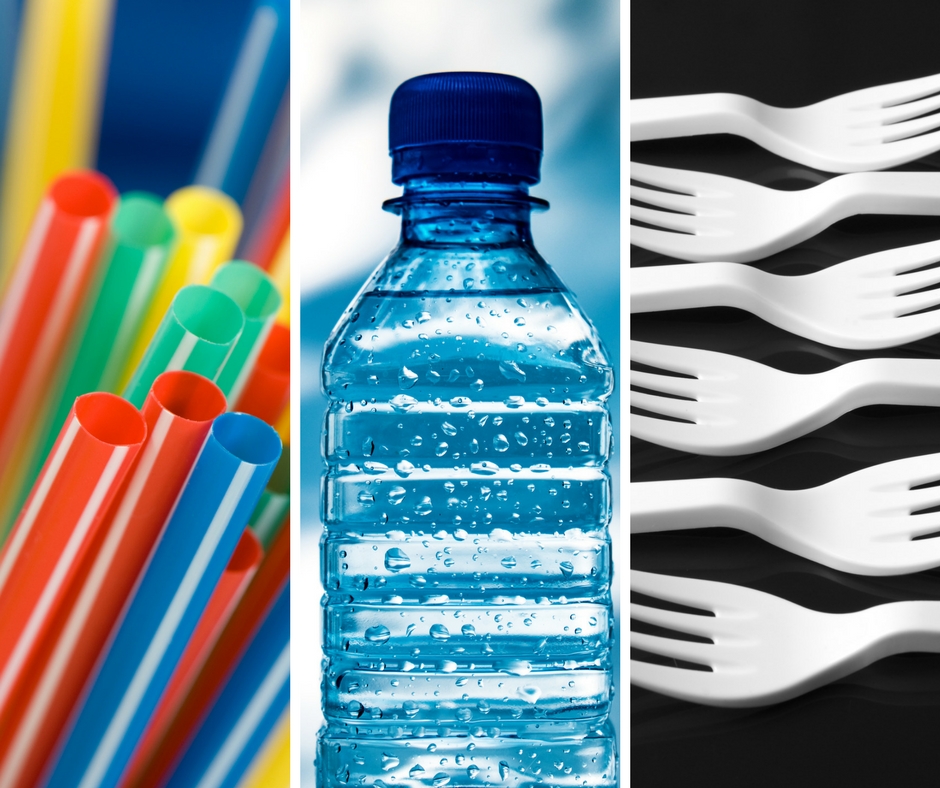5 Things You Need to Know About Single-Use Plastics
Single-use plastics, also known as disposable plastics, are plastics that are used only once before they are thrown away or recycled. Some single-use plastics you may encounter include plastic bags, straws, coffee stirrers, water bottles and food packaging. Single-use plastics are not only extremely damaging to our environment, but to our own health and well-being. Here are 5 things you need to know about single-use plastics and their harmful effects:
1. Single-use plastic is linked to cancer
Petroleum-based plastic is not biodegradable. When it is thrown away, it goes into a landfill and often finds its way into our oceans. Although plastic will not biodegrade (decompose into natural substance like soil) it does break down into tiny particles over the course of many years. During this process, the plastic releases various toxic chemicals which make their way into our food and water supply. As a result, these toxic chemicals enter our bloodstreams. Research has shown that these chemicals disrupt the endocrine system, which can cause cancer, infertility, birth defects, impaired immunity, and other harmful illnesses.
2. By 2050, all seabirds worldwide will have eaten at least one piece of plastic.
Studies have shown that plastic trash is found in at least 90 percent of seabirds. This rate is steadily growing as the global production of plastics increase. If we don’t do something now, by 2050, virtually every single seabird on the planet will be consuming plastic.
3. By 2050, there will be more plastic than marine life in our oceans.
An astounding 32% of the 78 million tons of plastic packaging produced finds its way into our oceans every year. That’s equivalent to an entire dump truck of plastic being emptied into the ocean every minute. At the rate we’re going, by 2050 there will be more plastics in our oceans than marine life. Scary, we know.
4. Toxic chemicals absorbed by microbeads are polluting our food chain.
Microbeads, which are tiny plastic beads that are produced for use as abrasives in cosmetics and personal care products, are a main cause of pollution in our waters. These buoyant, multicolored and spherical beads are washed down sinks, pass through wastewater treatment plants, and ultimately are discharged into our oceans. They persist for decades, acting as sponges for toxic chemical pollutants. Aquatic organisms easily mistake them for food, creating a pathway for pollutants to enter the food chain and contaminate the fish and wildlife we eat.
5. “Compostable and biodegradable” products aren’t always what they seem
You may have noticed that many companies are coming out with products that are “compostable and biodegradable.” Sounds great, right? In reality, these products don’t actually degrade in a natural environment and can cause just as much harm as good ‘ol plastic. Biodegradable plastic water bottles and shopping bags are a false solution to the ubiquitous problem of litter in the oceans, and a prime example of false advertising.






